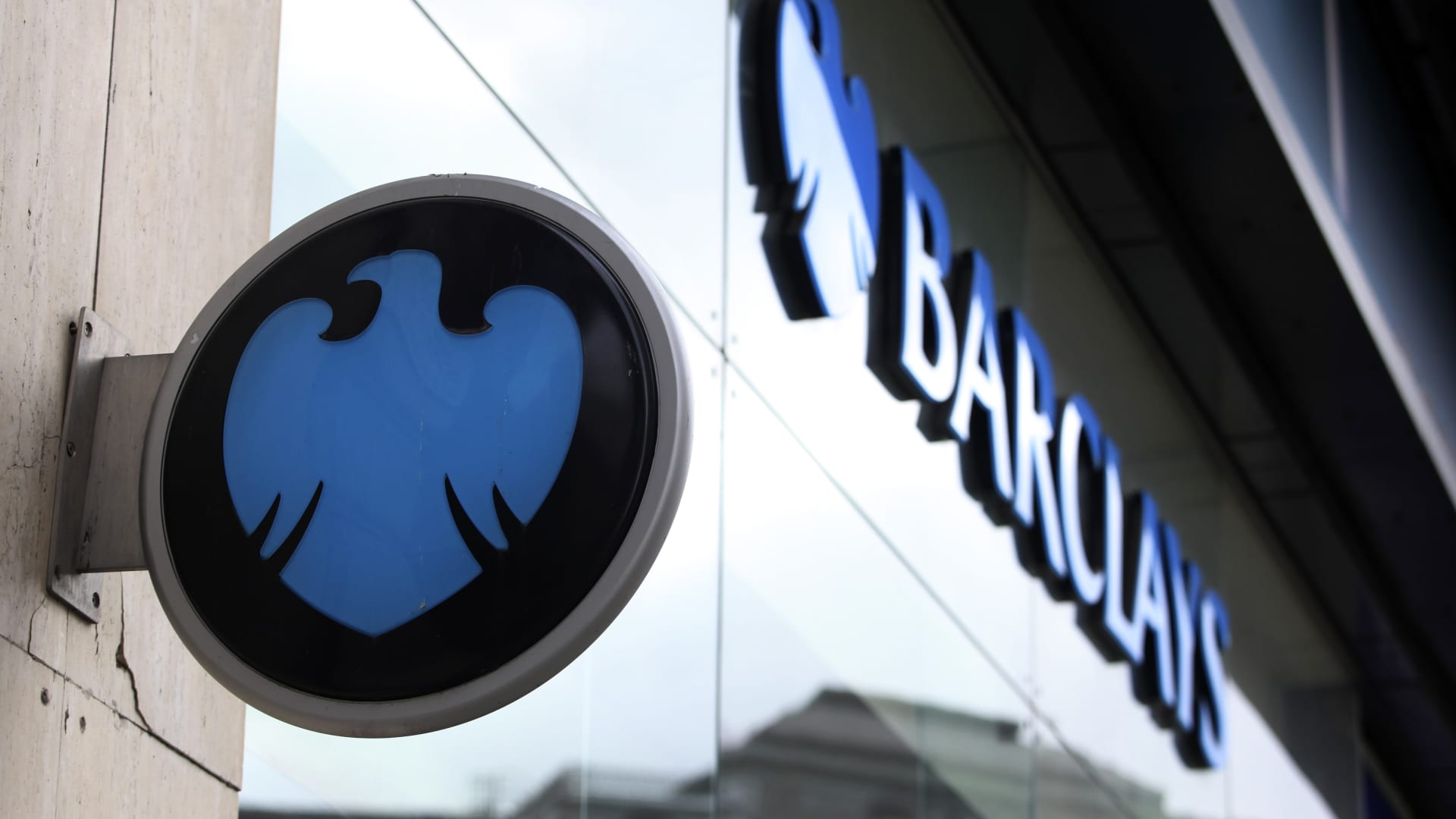Chris Ratcliffe | Bloomberg | Getty Images
Shares of British bank Barclays sank in early Thursday trade, after the lender eked out a full-year pre-tax profit beat and issued 2025 guidance in line with expectations.
Pretax profit rose by 24% to £8.108 billion in 2024, just above an analyst forecast of £8.081 billion, according to LSEG.
Net profit attributable to shareholders also picked up by 24% to £5.316 billion in 2024, but fell short of the £5.449 billion expected by analysts. Fourth-quarter attributable profit came in at £965 million, below the £994 million analyst outlook for the period.
The lender’s total income picked up to £6.96 billion in the three months to the end of December, versus £5.6 billion in the fourth quarter of 2023, with the core Barclays investment and retail units logging 28% and 46% year-on-year hikes to £2.61 and £2.62 billion, respectively.
The group’s return on tangible equity, a measure of profitability, averaged 10.5% in 2024, up from 9% in the previous year — as the bank set out targets for an increase to around 11% in 2025 and to more than 12% in 2026.
The bank also sets out to achieve a net interest income (NII) — a key profitability metric that indicates the money a bank made from loans after deducting the interest paid on deposits — of £7.4 billion across its retail unit this year, in line with expectations cited by Citi analysts.
“New 2025 guidance for NII, cost-income and RoTE are all broadly in-line with consensus, while 2026 targets are unchanged. Overall a solid set of results, but little new to get excited about either. This, plus the strong run up in the share price over the past year, may temper any initial reaction, but the stock still appears inexpensive in our view,” they said.
RBC analysts meanwhile drew attention to the bank’s expenses — which improved by 10% year-on-year to £4.24 billion in the fourth quarter, but saw litigation costs hit £121 million over the period, compared to £5 million in the same three-month stretch of 2023.
“The results themselves look satisfactory but the outlook is disappointing. In particular there is no change to FY26 targets (we expected increased capital return) and FY25 targets look in-line with consensus except for a slight downgrade to Banking NII – surprising given the Q4 beat,” KBW analysts said in a note.
Barclays shares were down 5% by 09:54 a.m. London time.
Restructuring
Since last year, Barclays has been implementing a strategic overhaul to whittle down costs by £2 billion by 2026, lift shareholder returns and stabilize financial returns, sharpening its focus on the profitable consumer and lending operations — and leading to the absorption of the retail banking business of British grocer Tesco’s.
Yet Barclays‘ traditionally strong banking unit could now stand to benefit from more open market share in the domestic space, as HSBC last month announced it is preparing to exit its M&A and equity capital markets businesses in Europe, the U.K. and the U.S. amid a larger restructure of its investment banking operations.
The bank has also been recovering from a sweeping three-day tech outage that disrupted payments and transactions at the end of last month, which has since been resolved.
More broadly, lenders have been battling lethargy in the U.K. economy and a pullback in IPO activity in the London Stock Exchange. The Bank of England executed its first rate cut of the year last week and signaled further trims in 2025 amid a downgrade in the U.K.’s economic forecast — with monetary easing typically eating away at bank profits, as it tightens the spread between lenders’ return in loans and their payout on deposits. British and European banks are also struggling to keep pace with counterparts in the U.S., which could benefit from an additional competitive edge if newly inaugurated U.S. President Donald Trump takes a lighter approach to local regulation.
In parallel, U.K. Finance Minister Rachel Reeves is prodding Britain’s Financial Conduct Authority toward promoting competitiveness in tandem with consumer protection, with markets eyeing the government’s Financial Services Growth and Competitiveness Strategy due out in spring.











